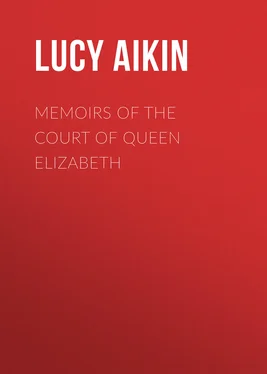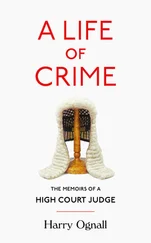Lucy Aikin - Memoirs of the Court of Queen Elizabeth
Здесь есть возможность читать онлайн «Lucy Aikin - Memoirs of the Court of Queen Elizabeth» — ознакомительный отрывок электронной книги совершенно бесплатно, а после прочтения отрывка купить полную версию. В некоторых случаях можно слушать аудио, скачать через торрент в формате fb2 и присутствует краткое содержание. Жанр: foreign_prose, История, foreign_edu, foreign_antique, на английском языке. Описание произведения, (предисловие) а так же отзывы посетителей доступны на портале библиотеки ЛибКат.
- Название:Memoirs of the Court of Queen Elizabeth
- Автор:
- Жанр:
- Год:неизвестен
- ISBN:нет данных
- Рейтинг книги:4 / 5. Голосов: 1
-
Избранное:Добавить в избранное
- Отзывы:
-
Ваша оценка:
- 80
- 1
- 2
- 3
- 4
- 5
Memoirs of the Court of Queen Elizabeth: краткое содержание, описание и аннотация
Предлагаем к чтению аннотацию, описание, краткое содержание или предисловие (зависит от того, что написал сам автор книги «Memoirs of the Court of Queen Elizabeth»). Если вы не нашли необходимую информацию о книге — напишите в комментариях, мы постараемся отыскать её.
Memoirs of the Court of Queen Elizabeth — читать онлайн ознакомительный отрывок
Ниже представлен текст книги, разбитый по страницам. Система сохранения места последней прочитанной страницы, позволяет с удобством читать онлайн бесплатно книгу «Memoirs of the Court of Queen Elizabeth», без необходимости каждый раз заново искать на чём Вы остановились. Поставьте закладку, и сможете в любой момент перейти на страницу, на которой закончили чтение.
Интервал:
Закладка:
Henceforth, though the act which declared null the marriage of the king with Anne Boleyn remained for ever unrepealed, her daughter appears to have been universally recognised on the footing of a princess of England; and so completely were the old disputes concerning the divorce of Catherine consigned to oblivion, that in 1546, when France, Spain and England had concluded a treaty of peace, proposals passed between the courts of London and Madrid for the marriage of Elizabeth with Philip prince of Spain; that very Philip afterwards her brother-in-law and in adversity her friend and protector, then a second time her suitor, and afterwards again to the end of his days the most formidable and implacable of her enemies. On which side, or on what assigned objections, this treaty of marriage was relinquished, we do not learn; but as the demonstrations of friendship between Charles and Henry after their French campaign were full of insincerity, it may perhaps be doubted whether either party was ever bent in earnest on the completion of this extraordinary union.
The popish and protestant factions which now divided the English court, had for several years acknowledged as their respective leaders the duke of Norfolk and the earl of Hertford. To the latter of these, the painful impression left on Henry's mind by the excesses of Catherine Howard, the religious sentiments embraced by the present queen, the king's increasing jealousy of the ancient nobility of the country, and above all the visible decline of his health, which brought into immediate prospect the accession of young Edward under the tutelage of his uncle, had now conspired to give a decided preponderancy. The aged duke, sagacious, politic, and deeply versed in all the secrets and the arts of courts, saw in a coalition with the Seymours the only expedient for averting the ruin of his house; and he proposed to bestow his daughter the duchess of Richmond in marriage on sir Thomas Seymour, while he exerted all his authority with his son to prevail upon him to address one of the daughters of the earl of Hertford. But Surry's scorn of the new nobility of the house of Seymour, and his animosity against the person of its chief, was not to be overcome by any plea of expedience or threatening of danger. He could not forget that it was at the instance of the earl of Hertford that he, with some other nobles and gentlemen, had suffered the disgrace of imprisonment for eating flesh in Lent; that when a trifling defeat which he had sustained near Boulogne had caused him to be removed from the government of that town, it was the earl of Hertford who ultimately profited by his misfortune, in succeeding to the command of the army. Other grounds of offence the haughty Surry had also conceived against him; and choosing rather to fall, than cling for support to an enemy at once despised and hated, he braved the utmost displeasure of his father, by an absolute refusal to lend himself to such a scheme of alliance. Of this circumstance his enemies availed themselves to instil into the mind of the king a suspicion that the earl of Surry aspired to the hand of the princess Mary; they also commented with industrious malice on his bearing the arms of Edward the Confessor, to which he was clearly entitled in right of his mother, a daughter of the duke of Buckingham, but which his more cautious father had ceased to quarter after the attainder of that unfortunate nobleman.
The sick mind of Henry received with eagerness all these suggestions, and the ruin of the earl was determined 9 9 One extraordinary, and indeed unaccountable, circumstance in the life of the earl of Surry may here be noticed:—that while his father urged him to connect himself in marriage with one lady, while the king was jealous of his designs upon a second, and while he himself, as may be collected from his poem "To a lady who refused to dance with him," made proposals of marriage to a third, he had a wife living. To this lady, who was a sister of the earl of Oxford, he was united at the age of fifteen, she had borne him five children; and it is pretty plain that they were never divorced, for we find her, several years after his death, still bearing the title of countess of Surry, and the guardian of his orphans. Had the example of Henry instructed his courtiers to find pretexts for the dissolution of the matrimonial tie whenever interest or inclination might prompt, and did our courts of law lend themselves to this abuse? A preacher of Edward the sixth's time brings such an accusation against the morals of the age, but I find no particular examples of it in the histories of noble families.
. An indictment of high treason was preferred against him: his proposal of disproving the charge, according to a mode then legal, by fighting his principal accuser in his shirt, was overruled; his spirited, strong and eloquent defence was disregarded—a jury devoted to the crown brought in a verdict of guilty; and in January 1547, at the early age of seven-and-twenty, he underwent the fatal sentence of the law.
No one during the whole sanguinary tyranny of Henry VIII. fell more guiltless, or more generally deplored by all whom personal animosity or the spirit of party had not hardened against sentiments of compassion, or blinded to the perception of merit. But much of Surry has survived the cruelty of his fate. His beautiful songs and sonnets, which served as a model to the most popular poets of the age of Elizabeth, still excite the admiration of every student attached to the early literature of our country. Amongst other frivolous charges brought against him on his trial, it was mentioned that he kept an Italian jester, thought to be a spy, and that he loved to converse with foreigners and conform his behaviour to them. For his personal safety, therefore, it was perhaps unfortunate that a portion of his youth had been passed in a visit to Italy, then the focus of literature and fount of inspiration; but for his surviving fame, and for the progress of English poetry, the circumstance was eminently propitious; since it is from the return of this noble traveller that we are to date not only the introduction into our language of the Petrarchan sonnet, and with it of a tenderness and refinement of sentiment unknown to the barbarism of our preceding versifiers; but what is much more, that of heroic blank verse; a noble measure, of which the earliest example exists in Surry's spirited and faithful version of one book of the Æneid.
The exalted rank, the splendid talents, the lofty spirit of this lamented nobleman seemed to destine him to a station second to none among the public characters of his time; and if, instead of being cut off by the hand of violence in the morning of life, he had been permitted to attain a length of days at all approaching to the fourscore years of his father, it is probable that the votary of letters would have been lost to us in the statesman or the soldier. Queen Mary, who sought by her favor and confidence to revive the almost extinguished energies of his father, and called forth into premature distinction the aspiring boyhood of his son, would have intrusted to his vigorous years the highest offices and most weighty affairs of state. Perhaps even the suspicions of her father might have been verified by the event, and her own royal hand might itself have become the reward of his virtues and attachment.
Elizabeth, whose maternal ancestry closely connected her with the house of Howard, might have sought and found, in her kinsman the earl of Surry, a counsellor and friend deserving of all her confidence and esteem; and it is possible that he, with safety and effect, might have placed himself as a mediator between the queen and that formidable catholic party of which his misguided son, fatally for himself, aspired to be regarded as the leader, and was in fact only the instrument. But the career of ambition, ere he had well entered it, was closed upon him for ever; and it is as an accomplished knight, a polished lover, and above all as a poet, that the name of Surry now lives in the annals of his country.
Читать дальшеИнтервал:
Закладка:
Похожие книги на «Memoirs of the Court of Queen Elizabeth»
Представляем Вашему вниманию похожие книги на «Memoirs of the Court of Queen Elizabeth» списком для выбора. Мы отобрали схожую по названию и смыслу литературу в надежде предоставить читателям больше вариантов отыскать новые, интересные, ещё непрочитанные произведения.
Обсуждение, отзывы о книге «Memoirs of the Court of Queen Elizabeth» и просто собственные мнения читателей. Оставьте ваши комментарии, напишите, что Вы думаете о произведении, его смысле или главных героях. Укажите что конкретно понравилось, а что нет, и почему Вы так считаете.












